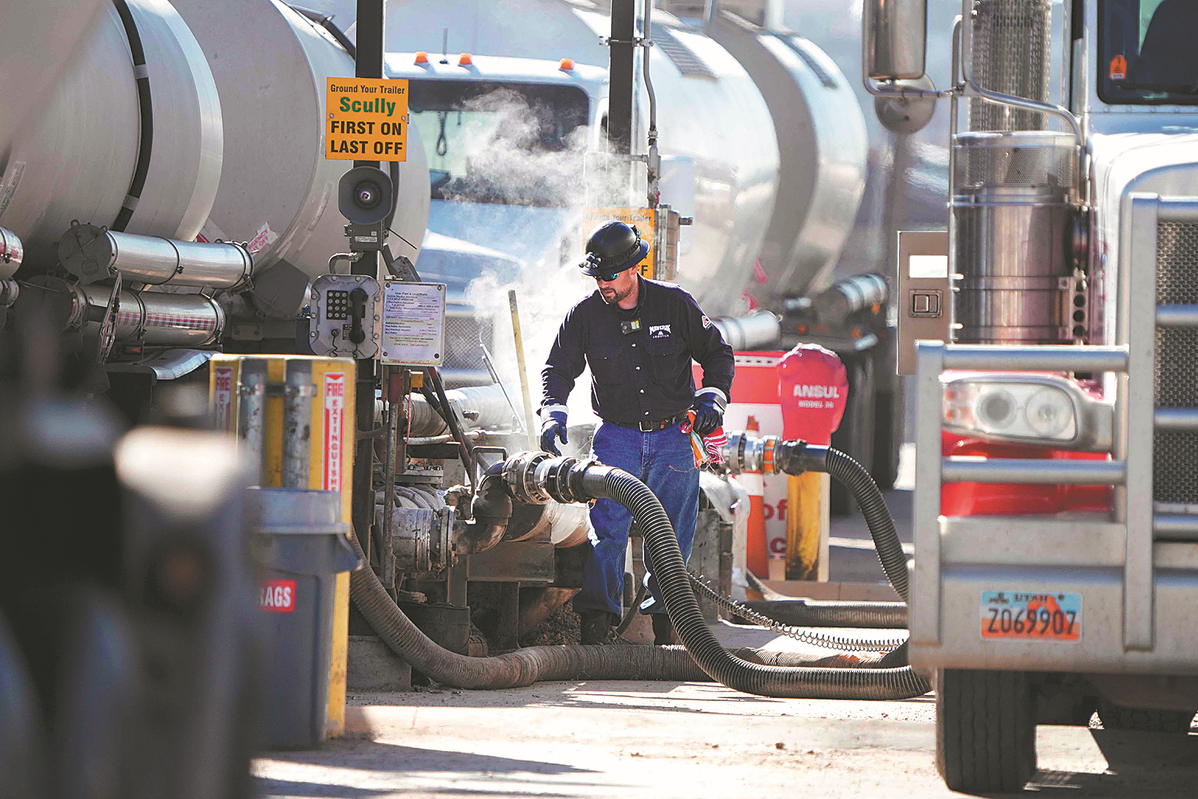Consumers hit as global gasoline prices soar






Presidential power
On Tuesday, White House press secretary Jen Psaki said the US administration would continue to push OPEC to increase production.
"There's a power of the president of the United States engaging on that front," she said.
"That issue has been raised at[national security adviser Jake Sullivan's] level, at a range of levels throughout government, but certainly the supply and OPEC, and putting additional pressure on OPEC is something that our national security team will continue to do."
In a video interview with China Daily on Tuesday, de Haan said the supply imbalance would support the high price of crude indefinitely.
"So, as a result of the increase in demand, because of that, and overall the global economy continues to improve from COVID-19, oil demand is likely to continue going up. And because of OPEC, which met three weeks ago declining to further accelerate restoring oil production, we're kind of in a Catch-22, where demand is rebounding but supply of crude oil is not, and that will likely keep oil prices elevated for some time," he said.
As of Tuesday evening, the average price for a gallon (4.54 liters) of regular gasoline in the US was $3.39, according to the American Automobile Association, or AAA. A year ago, the price was $2.14, according to the EIA.
With US consumer prices up by more than 5 percent, more-expensive gasoline is stretching many consumers' finances.
Andy Gross, an AAA spokesman, told Fox Business, "The key driver for this recent rise in the price of gas is crude oil, which typically accounts for between 50 percent and 60 percent of the price at the pump."
The highest average gasoline price on Tuesday in the US was $4.55 a gallon in California. The lowest, $3.01 a gallon, was in Oklahoma, home to major crude oil storage site Cushing.
Stockpiles at the Cushing facility fell by more than 4 million barrels over the past two weeks, "a stunning reversal from last year when the pandemic prompted a glut of oil so big that traders resorted to storing it in tankers at sea", Bloomberg's website reported.
US President Joe Biden said during a CNN town hall on Oct 21 that there was no immediate solution to the rising price of gasoline.
"My guess is you'll start to see gas prices come down as we get by and going into the winter-I mean, excuse me, into next year, 2022," he said.
"I must tell you, I don't have a near-term answer," Biden said, adding that he could "go in the[Strategic] Petroleum Reserve and take out and probably reduce the price of gas maybe 18 cents or so per gallon, but it's still going to be above 3 bucks."
Natural gas prices in the US-about three times higher than they were last year-have reached a 13-year high, according to the IEA.
USA Today reported that this is in contrast to recent years when booming business in shale oilfields led to plentiful natural gas and lower heating costs.














